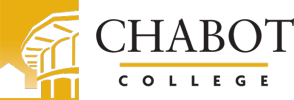
Anthropology
This program map from the 2024-2025 catalog year represents one possible pathway to complete this program. Your pathway may vary depending on your transfer plans and also previous college credit, including AP Test scores, concurrent enrollment courses and high school articulated courses.
I'm ready to get started. What do I do next?
- Review this program map to get an overview of the required courses
- Meet with a counselor to develop your customized student education plan www.chabotcollege.edu/counseling
- Use DegreeWorks, an online student education planning tool, to track your progress toward graduation www.chabotcollege.edu / admissions / degreeworks
What can I do with this major?
Due to the fact that Anthropology studies all of humanity, Anthropologists can seek careers in fields related to humanity. Depending on their focus and schooling, Anthropologists can persuade jobs in areas such as the Medical Field (Doctor), Law (Lawyer), Education (Teacher), Law Enforcement (Police), Politics, Business, Research, Administration, Forensic, Archaeologist, Art, Music, Immigration, Social Justice, and much more. In Anthropology, humanity is your oyster.
Learning and Career Pathway
- Social Sciences, Humanities & Education
Icon Key
Semester 1
List A Course (ANTH 4 or ANTH 12)
English 1- Critical Reading and Composition
General Education Course- see a counselor to choose the appropriate general education pattern and general ed course option for this term.
General Education Course- see a counselor to choose the appropriate general education pattern and general ed course option for this term.
Semester 2
ANTH
1
Biological/Physical Anthropology
ANTH
1L
Biological/Physical Anthropology Laboratory1
Math Course for General Education: Choose PSY 5 or MTH 43 (statistics)
List C Course
General Education Course- see a counselor to choose the appropriate general education pattern and general ed course option for this term.
General Education Course- see a counselor to choose the appropriate general education pattern and general ed course option for this term.
Semester 3
List B Course
ANTH
2
Introduction to Archaeology
General Education Course- see a counselor to choose the appropriate general education pattern and general ed course option for this term.
General Education Course- see a counselor to choose the appropriate general education pattern and general ed course option for this term.
General Education Course- see a counselor to choose the appropriate general education pattern and general ed course option for this term.
Semester 4
General Education Course- see a counselor to choose the appropriate general education pattern and general ed course option for this term.
General Education Course- see a counselor to choose the appropriate general education pattern and general ed course option for this term.
General Education Course- see a counselor to choose the appropriate general education pattern and general ed course option for this term.
Elective- see a counselor to choose a course that counts for elective units (can be any credit course).
Elective- see a counselor to choose a course that counts for elective units (can be any credit course).
List A
Select one of the following courses (3-4 units)
ANTH
4
Language and Culture
ANTH
12
Magic, Religion, Witchcraft and Healing
Intro to Statistics (Choose one)
List B
Select one of the following courses or any course from List A not already used (3-5 units).
Many courses on this list may also fulfill general education requirements. See a counselor to choose the best course.
Any course from List A not already used
BIOS
42
General Human Anatomy
GEO
20
Introduction to Geographic Information Systems
SOCI
5
Introduction to Social Research Methods
List C
Select one of the following courses or any course from List A or List B not already taken (3 units).
Many courses on this list may also fulfill general education requirements. See a counselor to choose the best course.